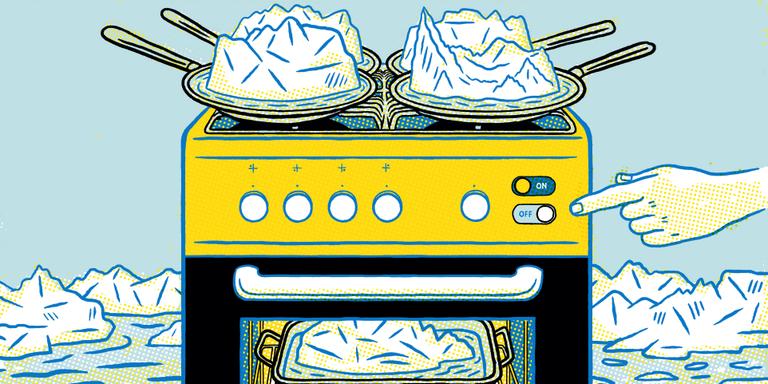


Glaciologist Heïdi Sevestre: 'Glaciers are our water towers, and we're in danger of losing them'
InterviewExplorer Heïdi Sevestre helps us understand the vital role of glaciers in the global climate balance and in drinking water resources.
The poles and glaciers are among the areas most vulnerable to climate change caused by burning fossil fuels (oil, gas, coal). By the end of the century, between 50% and 80% of the world's glaciers might have disappeared. Scientists point out that 1 kilo of CO2 emitted corresponds to 15 kilos of melting glaciers. Why are glaciers and the poles so fragile in the face of global warming? Why are they so important to human life? How can we cope with this accelerated melt?
French glaciologist and explorer Heïdi Sevestre provides some answers in an interview with Le Monde's French-language podcast "Chaleur humaine" (which roughly translates to "Human-driven warming"), broadcast in French on October 18, 2022. Below is a transcript of the episode's conversation.
What difference does the accelerated ice melt make to the planet's overall climate balance?
Ice is very important to us. We rarely think about it, because it's so far away, in the very high mountains or in the polar regions. But our daily lives and our future depend on the health of this ice. I'm talking about the glaciers, the polar ice caps – Greenland and Antarctica – but also all the other ice, such as permafrost, the permanently frozen ground. These iced areas are the best barometer of climate change because they're all ice! If temperatures rise, they shrink. But they're also very sensitive to changes in precipitation, like snow. The more snow there is, the happier the glaciers; the less snow, the more they shrink.
The primary reason for ice's importance is the role it plays in stabilizing the climate. Today, 10% of the Earth's land surface is covered by ice. That's a huge amount, and I think it's hard to imagine what that means. These white surfaces act a bit like a mirror: They have this ability to reflect the sun's rays back toward space, so they keep these mountain spaces and polar regions cold. Having cold poles and cold high mountains also stabilizes the climate everywhere on Earth. When we talk about the fact that the Arctic reacts very quickly to climate disruption and that the Arctic is warming up, this is something disrupting the climate right here in France.
This loss of ice also has other consequences, for example, rising water levels, or impacts on drinking water supplies.
These glaciers are our largest reserve of drinking water on Earth. When we think of the Himalayan glaciers, we're really talking about a water tower, with billions of people depending on glacier water throughout the year, especially outside the monsoon season. Today, if we were to melt all the ice on Earth, ocean levels would rise by 65 meters. That's monumental. Between 0 and 10 meters above sea level on the Earth's coasts, there are 700 million people! With bustling cities and thriving economies. So, even if we were to lose a tiny fraction of the ice on the planet, the consequences would be significant.
You have 83.02% of this article left to read. The rest is for subscribers only.
